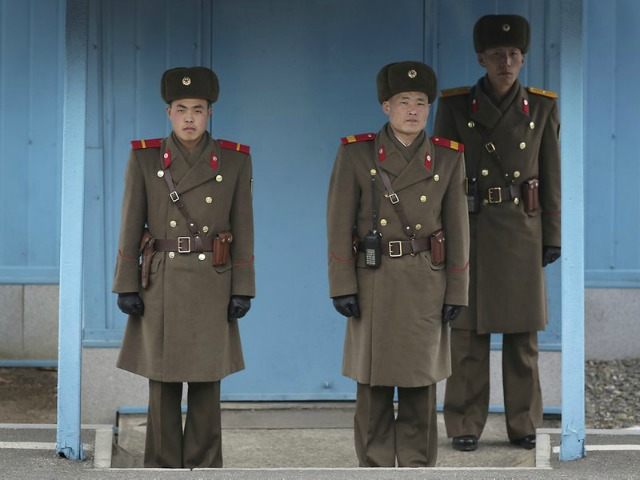North Korean defector organizations say that the U.S. State Department is willing to fund projects to help liberalize North Korea’s population, including information drops and agitating movements working within the communist country’s borders.
UPI is reporting that a number of representatives of North Korean defector groups operating out of South Korea believe they will soon receive financial support from the State Department. While UPI does not identify the individual organizations, it claims that representatives of these groups met with State Department officials in January and were told the White House was willing to “commit significant funds to defector organizations that can work toward internal regime change in the North.”
Among the programs that may be funded are airdrop operations using balloons, which provide information on the outside world to North Korea, as well as groups within the country that try to identify potential dissident leaders. UPI cites South Korean news agency Yonhap as confirming the meeting between the defector groups and the State Department.
Pro-democracy groups have been working near the North Korean border for years, attempting to break the information wall set up by the Kim regime to block out the reality of the outside world. One such project expected to begin this year is called Flash Drives for Freedom. Run by the Human Rights Foundation (HRF), the program requests that American volunteers donate old, used flash drives to its offices. The drives are then filled with news articles, South Korean soap operas, and Hollywood movies, then air-dropped into North Korea.
“In the world’s most closed society, flash drives are valuable tools of education and discovery,” the Flash Drives for Freedom website explains. “In a society without internet, with total government censorship, and with no independent media, North Koreans rely on these little pieces of plastic. Filled with films, books, and explainers, they are windows to the outside world.”
“South Korean soap operas, Hollywood movies, video footage of South Korea, interviews with defectors, music videos and even the Korean language Wikipedia can all be useful content,” Alex Gladstein, chief strategy officer for HRF, tells the Korea Times of the project.
Possessing any media from the free world could cost a North Korean citizen his or her life. In 2014, defector Yeonmi Park, who has become an activist against the Kim regime, recalled in a speech in Ireland watching, at nine-years-old, her mother’s friend publicly executed after the woman was found in possession of a James Bond movie.
In addition to executing North Koreans who come into contact with Western media, Pyongyang has executed retaliatory air-drops into South Korea. Last month, the North Korean government dropped thousands of pamphlets into South Korea, calling the nation the “Republic of Garbage.” Along with the pamphlets, North Korea dropped hundreds of cigarette butts and used toilet paper into their neighbor. It is believed the move was in response to South Korea’s resuming broadcasts on the border into North Korea of K-pop music videos and news of the outside world in January, following Pyongyang’s claim that its military had successfully detonated a hydrogen bomb.
Since the January blast – which many experts believe was not a hydrogen bomb, but a weaker nuclear weapon – relations between North and South Korea have deteriorated significantly. The Demilitarized Zone (DMZ), the border between the two nations, has become rife with tensions, according to a North Korean soldier speaking to the Associated Press. South Korea’s decision to end cooperation at the jointly held Kaesong industrial complex has triggered elevated rhetoric from North Korea. “But as the Kaesong industrial zone has been totally closed by South Korea, our people and army are getting more enraged,” the North Korean soldier said, refusing to say the name of South Korean President Park Geun-hye.
North Korea has threatened a preemptive strike on South Korea once again this week. Pyongyang claimed it is “ready to immediately and mercilessly punish without slightest leniency, tolerance and patience anyone provoking the dignified supreme headquarters even a bit” through its Korean Central News Agency Tuesday.
Americans have come to see North Korea as the greatest danger facing the United States today, according to a recently released Gallup poll. Sixteen percent of American respondents named North Korea “the U.S.’s greatest enemy,” more than those who gave the title to Russia, China, or even the Islamic State (ISIS/ISIL) terrorist group.

COMMENTS
Please let us know if you're having issues with commenting.